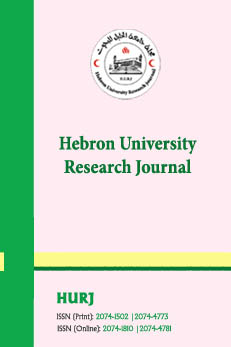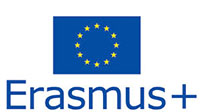Compulsory Requirements
25720 / 601JRN Quantitative Research Methods
The course includes:
- Application of survey research types (content analysis, and questionnaires) and experimental methods and their tools in proper ways.
- Correct formulation of questions and hypotheses.
- Measuring the necessary validity and reliability tests in research: measures of central tendency, measures of dispersion, reliability test coefficients, correlation test coefficients, and test coefficients for differences, with application to media studies
25722/ 603JRN Legislations and Communication Ethics
The course includes:
- Enabling the student to understand and analyze local, Arab, and international legal regulations and media codes of ethics.
- Presenting and analyzing models of judicial trials related to media publishing issues and publishing them.
- Critically analyzing media practice theories related to media ethics and legislation
25723/ 604JRN Qualitative Research Methods
This course includes: • Designing a qualitative research using one of the following tools: observation, case study, in-depth interview, and focus groups, as well as understanding and applying data analysis methods and comparing the obtained data
25724/ 605JRN Communication Readings in English
This course includes:
- Analyzing and critiquing media-related scientific research in English.
- Providing students with concepts and terminology related to media studies in English.
- Enabling them to critique and evaluate topics published in English.
- Presenting and showcasing research in English.
25721/ 602JRN Communication Theories
After studying this course, the student is expected to be able to:
- Track the historical development and evaluate both modern and classical media theories.
- Understand the foundations of media theories with limited, moderate, and strong effects.
- Apply the measures of various theories and utilize them in different media topics.
- Use theories in scientific research in appropriate ways.
- Select the appropriate theory for research topics in media and justify the reasons for their selection.
Elective Requirements
25760/ 606JRN Research Seminar for Media Issues
This course includes:
- Presenting examples of various media issues across different fields (journalism, radio and television, public relations and advertising, new media), and discussing the methods used as well as the strengths and weaknesses of the presented studies.
- Enabling students to acquire practical methodological skills for preparing a complete research paper, including its outline and various professional steps
25761 / 607JRN New Media
The New Media course includes:
- Equipping students with skills related to interacting with new media and its various applications.
- Providing students with skills to analyze the content published on websites.
- Supplying students with modern approaches that explain new media.
25762 / 610JRN Research Seminar in Radio and Televisio
The course includes:
- Presenting examples of scientific plans in the field of radio and television for study, comparing their elements, critiquing them, and formulating them scientifically and developing them to meet the scientific and methodological observations resulting from discussions.
763/ 611JRN Jordanian Media
The course includes:
- Understanding and analyzing the historical contexts of Jordanian media and the organizational structures of media institutions in Jordan.
- Distinguishing between Jordanian media discourse in print, audio, and visual forms.
- Identifying priority topics highlighted by Jordanian media in their publications and broadcasts through content analysis.
- Comparing the reality of Jordanian media with other media systems in the Arab region.
25764 / 620JRN Communication and Public Opinion
The course includes:
- Understanding the structure of the communication process, its techniques, strategies, and its relationship with shaping public opinion. It also presents various models of public opinion surveys on political, economic, social, media-related, and other issues.
- Providing students with specific applications on how to use communication to shape public opinion on various issues.
25765 / 621JRN International Public Relations
The course includes:
- Equipping students with the skills to analyze and critique the most prominent theories in the field of international relations and identify key behaviors that govern international public relations.
- Presenting models from different countries highlighting the most important and prominent institutions and organizations involved in international public relations.
- Enabling students to conduct comparisons in international public relations between developing and developed countries, along with executing an international public relations campaign focused on specific issues
25766/ 622JRN Public Relations and Crisis Management
The course includes:
- Understanding and analyzing methods and approaches for developing therapeutic and preventive strategies to face crises encountered by institutions.
- Presenting models of crises faced by institutions and companies at local, Arab, and international levels.
- Equipping students with methods to measure public opinion, assess job satisfaction, and conduct research on crises.
- Monitoring and analyzing the types of crises that institutions and companies face.
- Understanding the roles played by institutions' management in handling crises before, during, and after they occur.
- Equipping students with the skills to use communication methods and patterns to address crises.
25767 / 630JRN International Media
The course includes:
- Providing students with information about prevailing media systems and the institutions responsible for managing international media, the nature of media structures governing media outlets, the flow of information, and news production.
- Conducting research on models of international media institutions within the framework of the four theories in journalism: liberty, authoritarianism, social responsibility, and development
25768 / 631JRN Media for Sport and Health
This course includes:
- Providing students with information on writing techniques for sports and health media.
- Conducting research on specialized topics in sports and health media.
- Distinguishing between sports and health media arts and other specialized media forms





